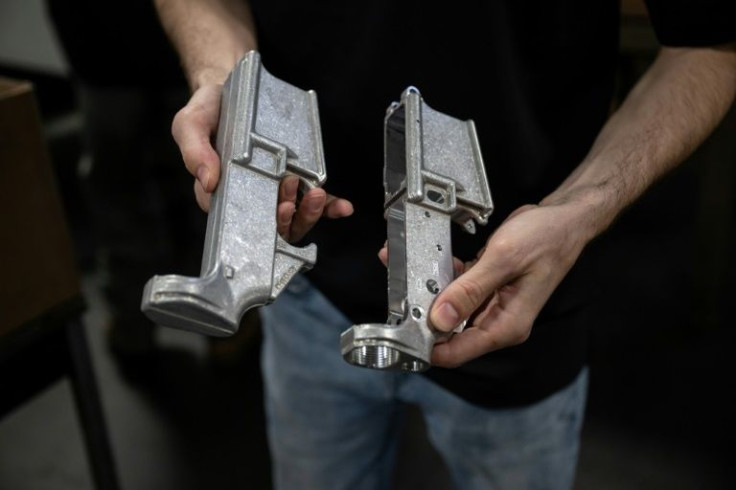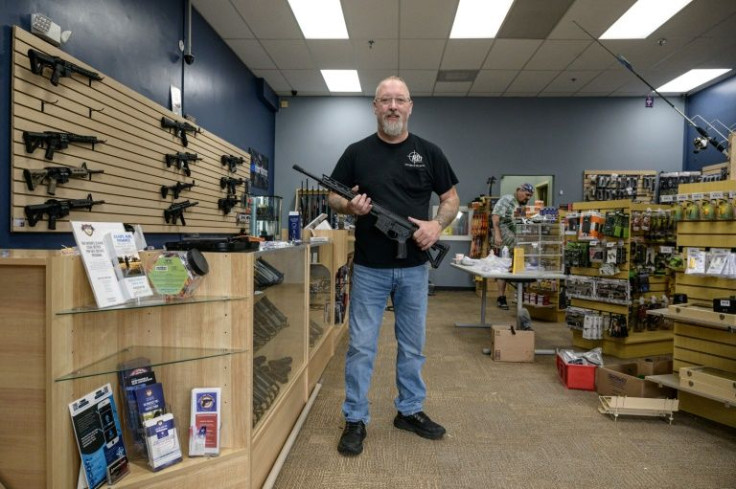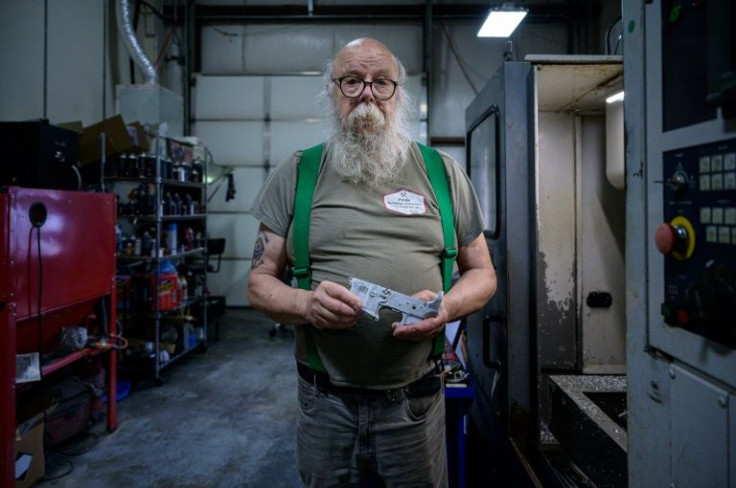Small Gun Makers Boom As US Demand Soars
Tony Hook flipped through cell phone pictures of finished work by his New Hampshire shop, explaining how one customer wanted mementos of major life events: a gun to mark each of his children's births.
Smaller gun makers like him are booming in the United States, thanks to ravenous and sometimes specialized demand for pricey limited-production pistols and custom rifles, engraved with bible passages or the American flag.
"He had us build a gun for every newborn he had," explained Hook, the owner of RTD Arms & Sport. "So this is his son's name and his date of birth," he said, showing the engraving on a rifle.

The millions of guns produced annually in the United States are primarily made by the nation's biggest manufacturers, yet smaller operators have poured into a market that saw production nearly triple from 2000 to 2020.
The smaller makers can churn out parts destined for major firms like Sig Sauer or Smith & Wesson and for enthusiasts and gun shops, or they can be manufacturers themselves of specialized or customized weapons.
"It's just like maybe stitching your name onto your baseball glove or having custom pinstriping put on your car," said Hook. "People do the same with their guns. It's a piece of them."

The United States has a deep culture of gun ownership centered around a constitutional guarantee for Americans to keep and bear arms, and as a result has a sprawling market of weapons, gear and accessories.

America also sees roughly 40,000 gun deaths a year, about half of which are suicides, though homicides increased at historic rates during the pandemic.
In this context, the gun and ammunition industry added an estimated $70 billion to the US economy in 2021 according to industry group NSSF -- perhaps not surprising when a single rifle from a smaller workshop like Hook's can sell between $1,295-$1,695.
"Seeing that the gun doesn't have to look so generic, it's attracting people in that never considered it before," he added.
The boom in gun making is illuminated in US federal firearms license statistics, with the number of so-called "type 7" permits that allow production as well as sales increasing by over 694 percent from 2000 to 2020.

Getting one of those permits requires paperwork from applicants that includes their photo, fingerprints and other information, while the government also does a background check and in-person interview.
Big states like Texas and Florida each had hundreds of manufacturers of all sizes that reported, as required by law, their production to federal authorities for 2020, the most recent figures available.
Matrix Arms in New Hampshire is one of those makers and its CEO and owner Allen Farris said so many manufacturers have joined the industry that the market has been saturated for at least the past six years now.
Yet his company appeared to be staying busy, with a row of machines the size of shipping containers churning out gun parts on a recent weekday.
He noted that each week they produce 4,300-5,300 rifle receivers -- key central components to making a gun.
"Our state motto in New Hampshire is 'Live free or die' and I think the firearm industry kind of goes hand in hand with that," he added.
Hook and Farris emphasized they did not want their guns to be used in crime or mass murder and said they followed the law -- with Hook also citing his own instinct, if a would-be buyer sets off alarm bells -- to try to prevent that.
Inevitably, as the gun making industry has grown, more people face the risk the firearms they produce could be used in a crime, mass shooting or suicide.
"We don't look at it as guns are the problem. People are the problem. Whether it's a gun, a knife or a rock -- Cain didn't kill Abel with a gun. He killed him with a rock," Hook said.
Farris added: "If somebody has the motivation to go out and try to kill people, first of all they could choose a million different ways."
"Obviously I don't want my guns being used in that way, but there's nothing I can do to prevent it at that point."
© Copyright AFP 2024. All rights reserved.





















